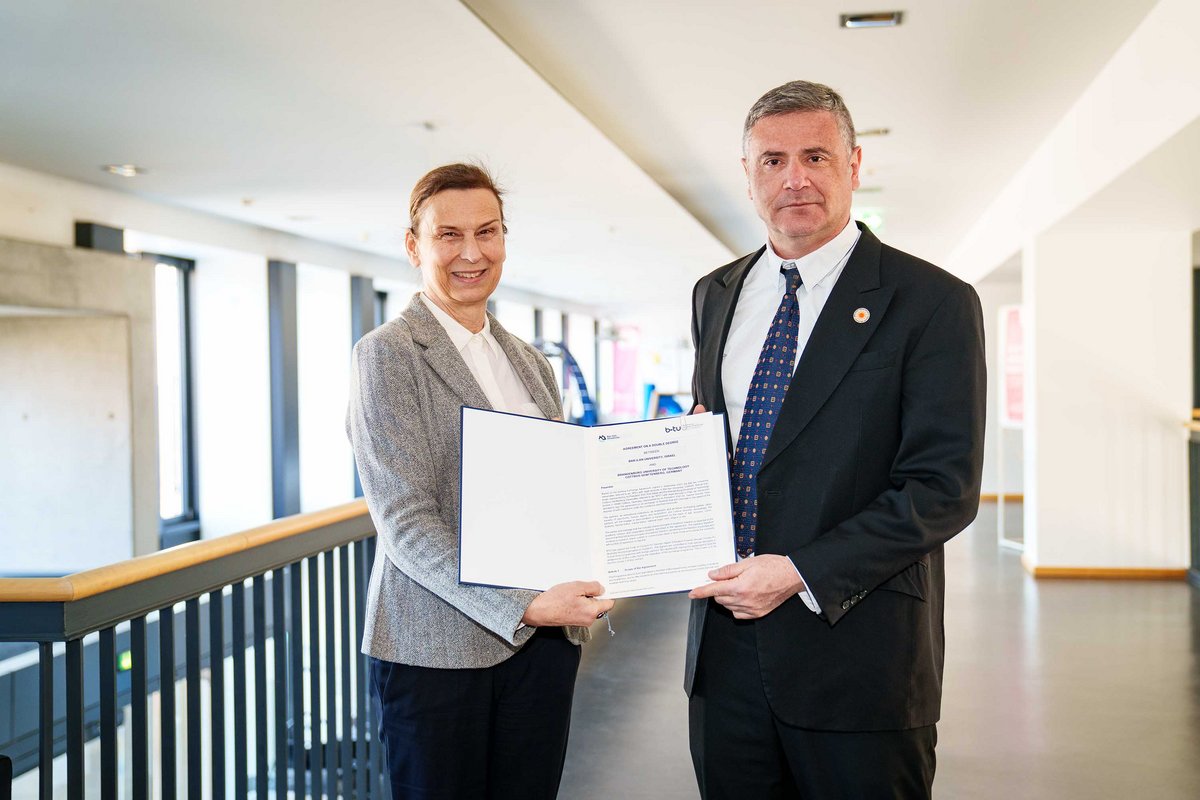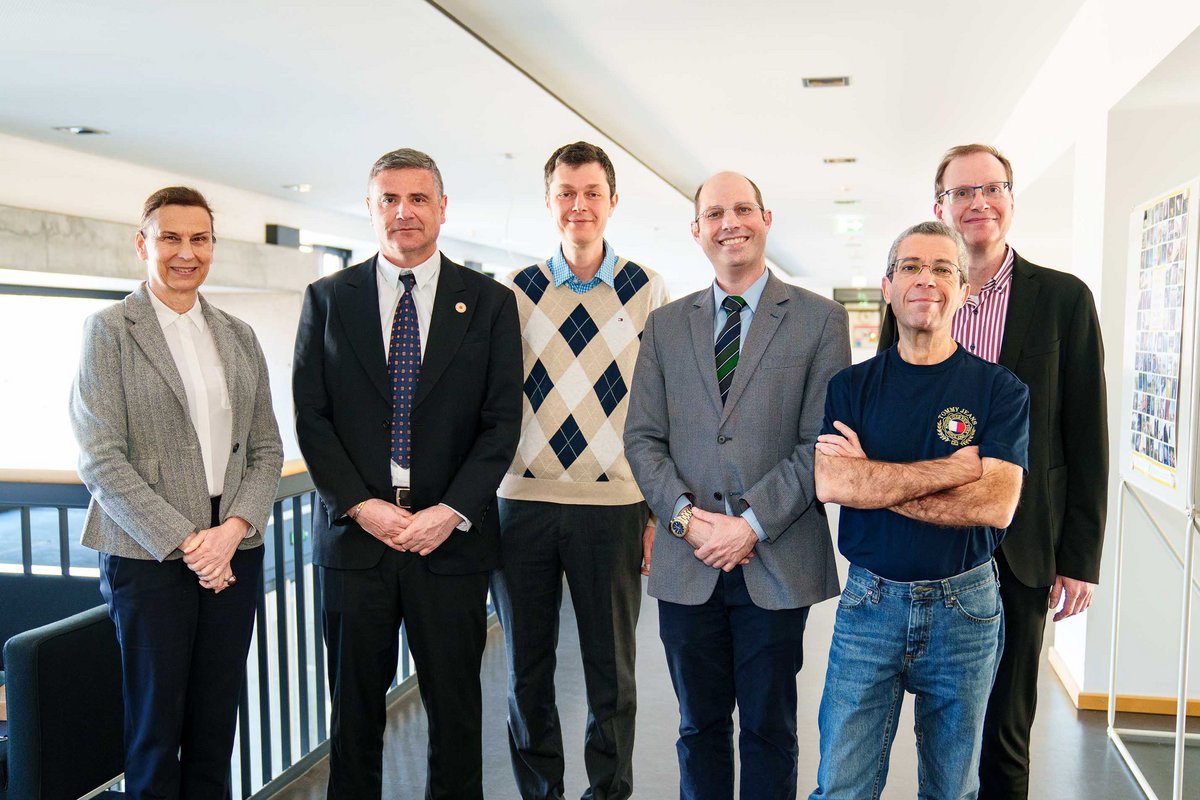German-Israeli double Master's programme in Micro- and Nanoelectronics gets underway
To mark the occasion, a four-person Israeli delegation led by Vice-President Prof. Zeev Zalevsky and including the Dean of Engineering Prof. Alexander Fish, Vice-Dean Prof. Leonid Yavits and the co-founder and former Technical Manager of Horizon Semiconductors and Internationalisation and Erasmus+ Officer Daniel Schuval visited BTU Cottbus on 5 March 2025.
BTU President Prof. Gesine Grande and Vice President for Research and Transfer Prof. Michael Hübner welcomed the guests. After the handover of the signed agreements, a constructive exchange took place with the International Relations Office and the Research Department under the direction of the Vice Presidents, Prof. Michael Hübner and Prof. Wolfram Berger. The guests then visited the chesco - Centre for Hybrid Electric Systems Cottbus, the Fraunhofer Institute for Photonic Microsystems (IPMS) and the Energy Innovation Centre (EIZ).
The bilateral cooperation between BTU and BIU dates back to 2019 and is based on an initiative of the Computer Engineering chair, then headed by Prof. Michael Hübner. Since 2020, there has been an active exchange in the ERASMUS+ programme with a focus on Computer Science, in particular chip design. Since then, numerous exchanges of students, researchers and staff members have been realised. During a visit to the BIU in June 2023, further potential fields of cooperation were discussed and the basis for this was laid with an interdisciplinary cooperation agreement. With the development and establishment of a joint double degree programme in Micro- and Nanoelectronics under the direction of Prof. Matthias Rudolph, the next important step has now been taken to further deepen the partnership.
The joint Master's programme aims to train highly qualified academic specialists in the field of Microelectronics and to further fund the mobility of students and scientists. Students have the opportunity to gain international experience as well as specialist qualifications and, after successfully completing the programme, to obtain a degree not only from their home university but also from the partner university.


